I am often asked what I think Neurodiversity is ( or not) and what do the words neurodivergent and neurotypical mean
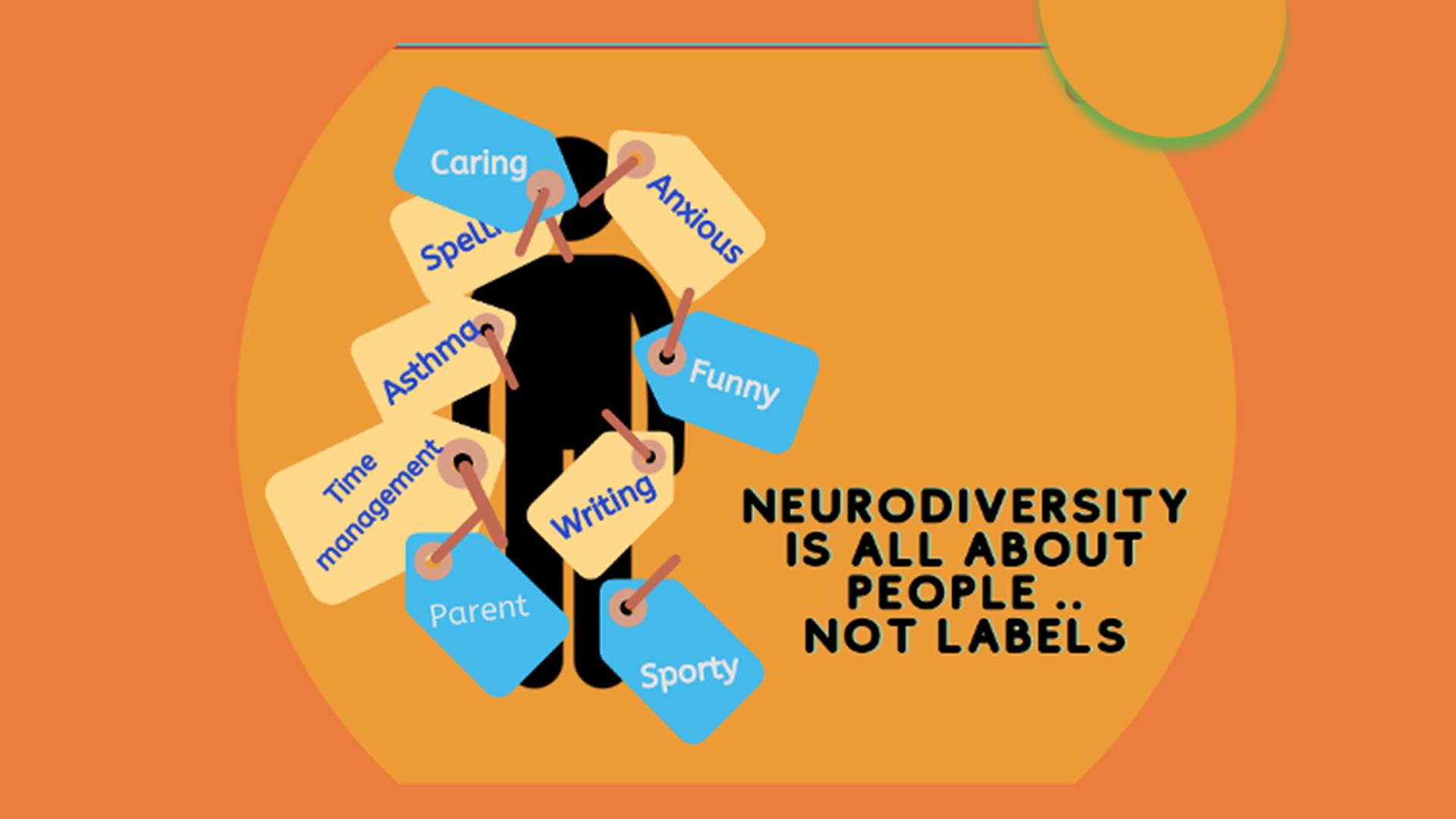
I started thinking about that and began to think about myself and my family. I often describe myself as an ‘oddball’. In school, I never quite fitted in. I didn’t always feel I belonged. I was quite mature compared to some of my peers and often had older friends.
My hobbies were a little out of synch with others and I could never remember lyrics to any song being sung or know who the artist was apart from Simon and Garfunkel and Elton John! I was super organised for future planning but also very disorganised in the present.
I was better at playing one-to-one sports, such as table tennis or doing gymnastics and swimming but found it much harder in big teams and tended to be put in goals!
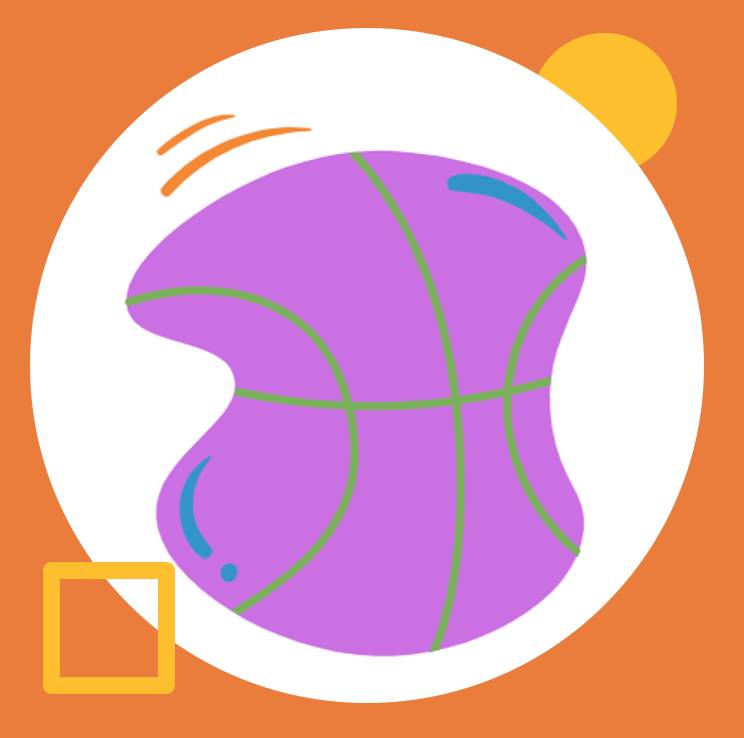
I was always chatty and could talking about ideas and would come up with some whacky connections! But I was not as good at getting my thoughts down onto paper. I was often told my exam results were disappointing. I was always fidgety in class and would be the first to get up to help ( this has always been my strategy to be able to move around) and I was an endless doodler!

As I grew up, I knew I wanted to be a doctor, but I had to work very, very hard in medical school to remember endless facts and found lectures a very hard way to absorb information. I would work all hours instead of going out to drink and party.
I loved being on the wards in the hospital and as soon as I was with patients, I was off and away and could remember every patient. Real-life engagement for me was much easier than trying to learn abstract information.
Listening to someone telling me their ‘story’ has always been humbling for me in that someone shares this with me and feels I am a safe space to do so.
Why am I telling you this? I have a very spiky profile! I struggled through my growing up to know what this meant. In my late teens, I had an eating disorder too and was very anxious about exams, and a real fear of failure.
But as a female no-one suggested that this could be a part of neurodiversity or my traits could be associated with ADHD at all. At my age and stage, I am understanding myself a bit better and have coping mechanisms in place to do so but it seems a shame that it has taken 30 years working in this field to do so.

My family of all-sorts
All around me, uncles, aunts, cousins, nieces, and nephews, and very close family members have diagnoses of Autism, ADHD, Developmental Coordination Disorder, Developmental Language Disorder, and Dyslexia. Along with this some also have anxiety, depression, bipolar disorder, Parkinson’s Disease, Joint Hypermobility Syndrome, epilepsy and intellectual disability.
Some are highly verbal and others non-verbal. Lots are left-handed and some are not. What we have in common are very, very, spiky profiles and this has led in some cases to huge successes and being innovative.
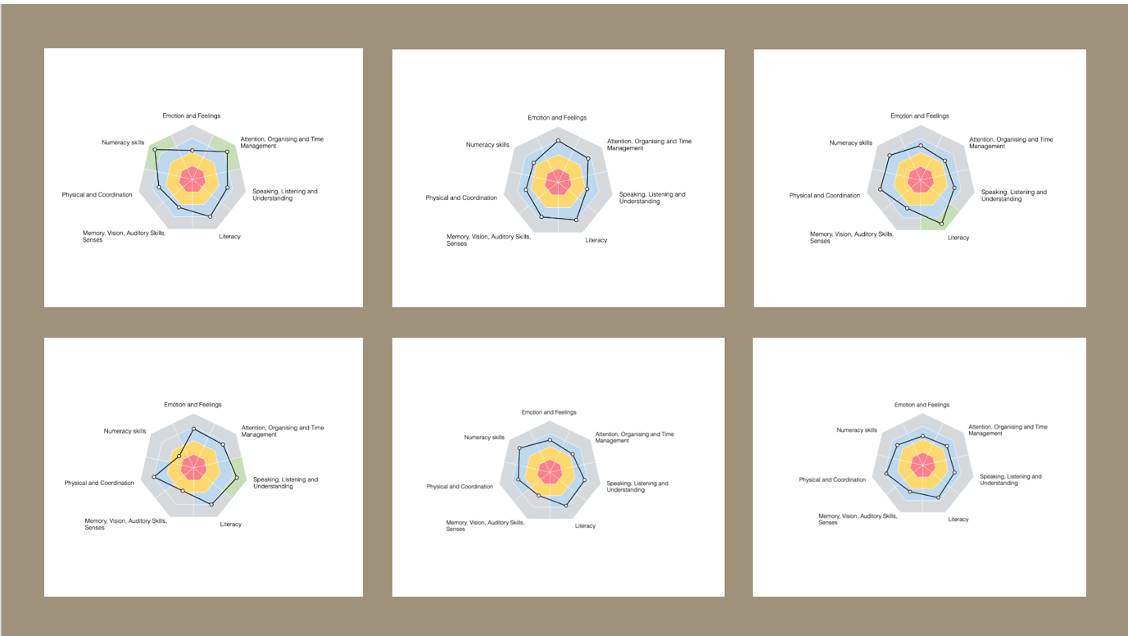
Many in of family are entrepreneurial – we have inventors, computer scientists, doctors, artists, and composers. We also have other family members with deep ‘bits’ of their profile that are really challenging for them.
It is a reality that the challenges are not all societal and that if someone has epilepsy or has depression help needs to be given to that person. However, some challenges are barriers created by society.
Our journeys to employment and beyond have been varied with entrepreneurs having great successes and great failures and for some of my family, it has been very tough with many bumps in the road.
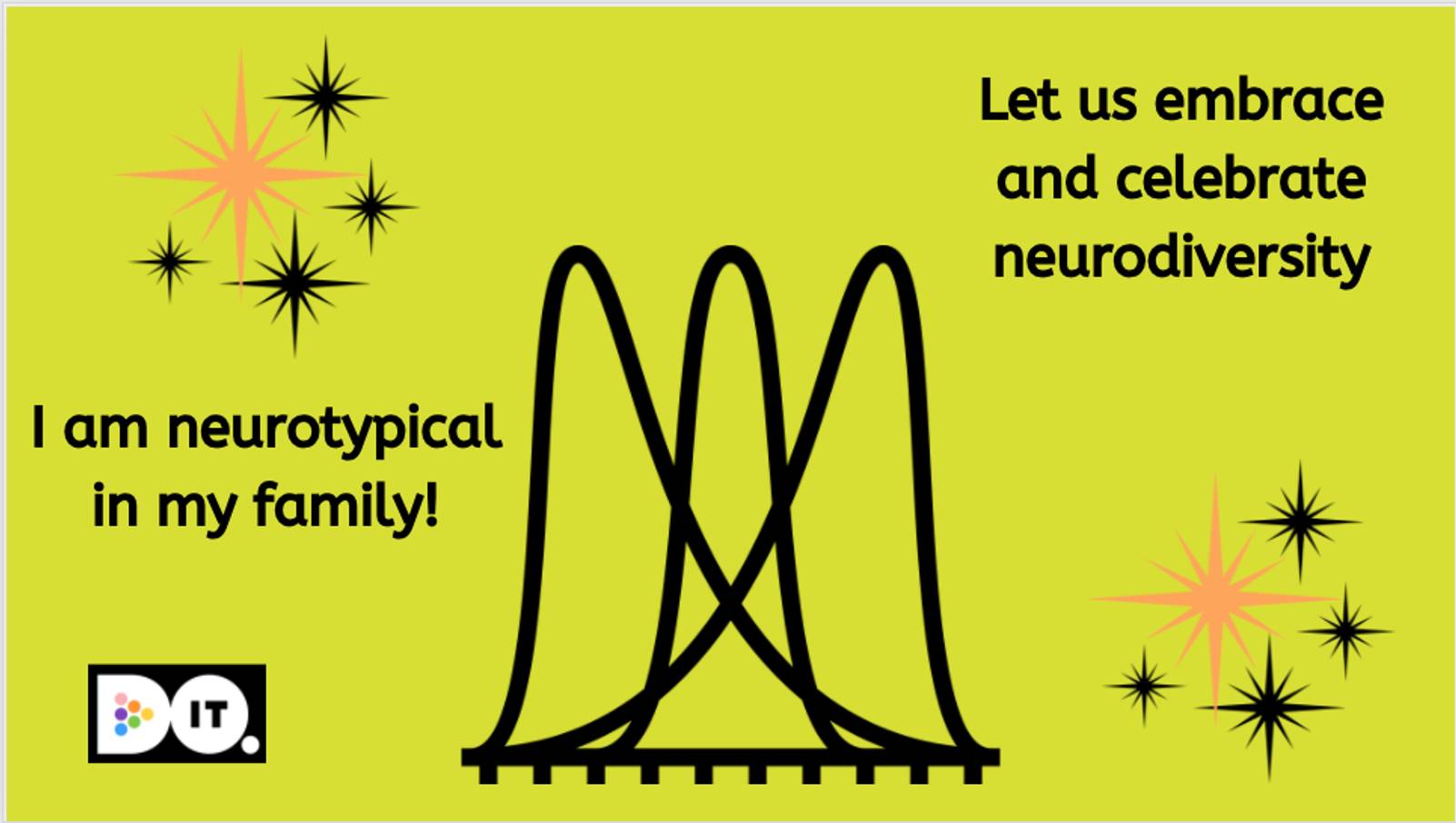
So what is neurotypical?
The terms typical and divergent are interesting as they are about a ‘normal distribution’ and what is average or deviates from this. However, have you ever met someone average? And also average for what? I had an epiphany the other day that my neurotypical is actually my family, as we are all a bit quirky and see the world from different perspectives.
We can communicate in different ways and some see new connections that are really amazing. The challenge for my children and my grandchildren is being in a world that operates in a certain way that is seen as typical. There are expectations on us from a young age to sit still, handwrite, play team games and socialize in large packs.
One junior member of my family has difficulties with their handwriting in forming letters but is super bright at maths and is even learning to code at 6 years of age. His future will be stellar as long as he navigates education.
The challenge I have is not that he has handwriting difficulties but why in today’s world is it that important to anyone? In a world when he grows up won’t need that skill. The impact now for him at 6 years of age is what the others in his class see when they see his writing and judgments they may make.
Rather than seeing his fab and amazing skills, they see ( and he sees) what he is less good at. His spiky profile and talents need to be celebrated. He is lucky in many ways in that he comes from a loving family, has had support early, and is in a lovely school but I worry for the many 1000s’ of children when this is not the case.
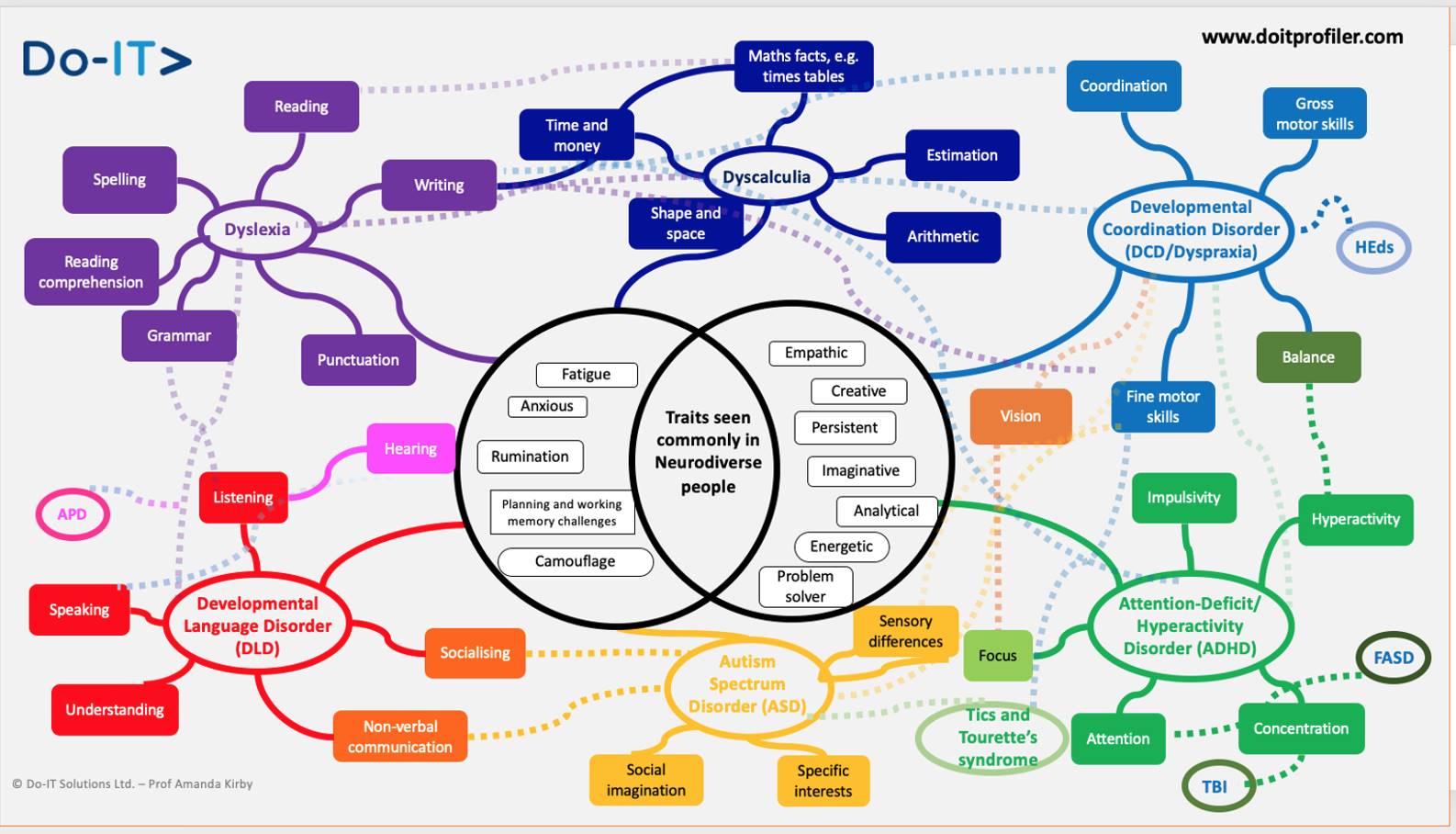
We obsess about diagnosis and categorization rather than considering the needs of each child or adult, but this is more about fitting into systems rather than the person fitting into a category. The diagnosis gains a golden ticket to an EHCP for example. But a child or person is never the sum of one diagnosis or condition.
What I mean by this is, that getting a diagnosis of Dyslexia, for example, maybe very important for parents or an adult because it helps to get support, but it doesn’t ever describe that person!
Each person may come from a different family, different culture, had different educational experiences and lives in different places. What we regard as a disability in one place or within one family will be different from another. What we share or feel ashamed about may be different from country to country.
People are not neurodivergent but skills and areas of cognitive functioning can vary from the norm. Such as being an amazing athlete but an average reader or being great at computer programming but have significant challenges socialising in novel situations.
We are all neurodiverse and some skills are divergent. We may fit into groups ( if we want to) that are being called neurominorities.
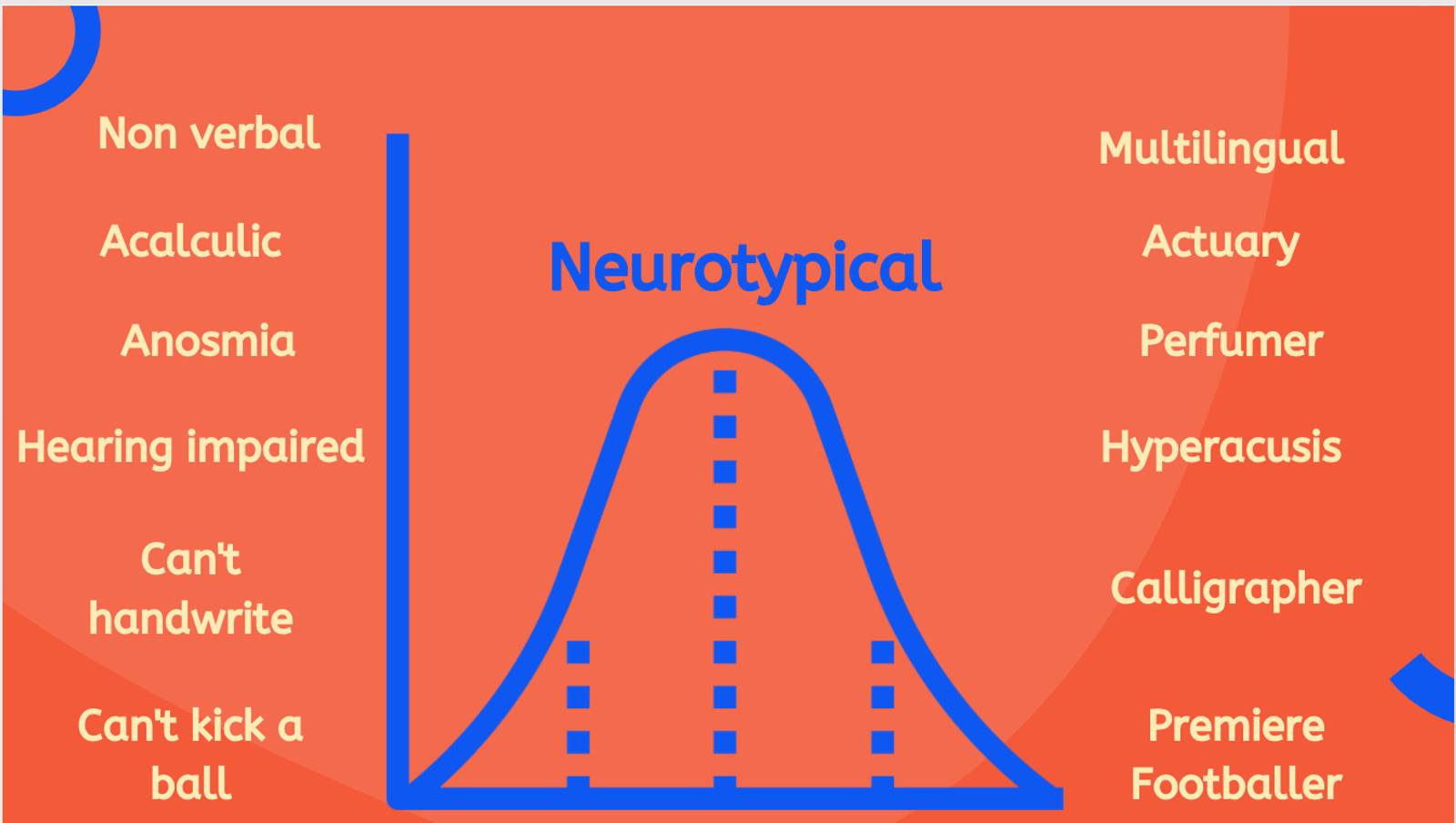
Neurodiversity is all our brains and their 10×5 connections and contains roughly the same number of neurons as there are stars in the Milky Way, around 100 billion. I find it amazing that we decide to box people into seven or eight ‘conditions’ and think that this is ‘neurodiversity’. How we see and perceive, hear, touch, communicate and understand our world will all be different. No-one is ‘good’ at everything.
1 in 6 of us have ‘spikier profiles’ with great strengths but also challenges where support can be helpful. However, some people have traits associated with some conditions such as Autism Spectrum Disorder, Dyslexia, Dyscalculia, Developmental Coordination Disorder, and ADHD. for example. The reality is that no-one fits into one of these neat boxes and all of these conditions overlap often to a greater or lesser degree.
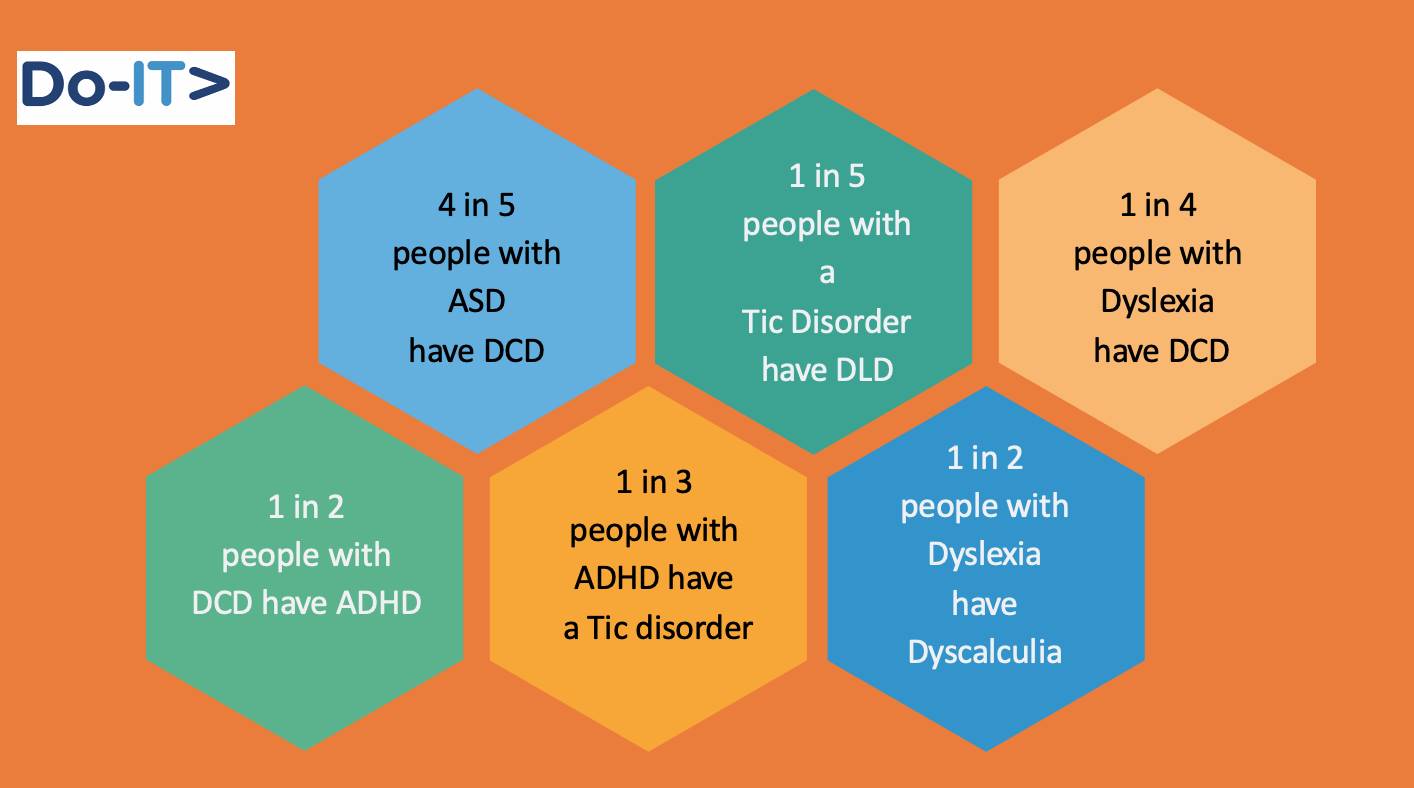
Many adults may have grown up struggling with socializing in school, reading, and writing, or with playing ball games and some will have been bullied. They may have been confused about the reasons for not quite ‘fitting in’ and thought they had fewer capabilities than they actually had because of lower self-esteem.
We talk about imposter syndrome and I still feel even at my stage of life that I will be found out one day that I am not very capable! These feelings we have from early years often stay with us throughout our lives.
There is extensive evidence that certain groups, in particular females and those from Black, Asian, and other minority ethnic groups, may have been either missed or misdiagnosed. For some, they may have been diagnosed with something else such as anxiety or depression.
Much of the early research relating to neurodiversity had in fact focused much more on white males and so the vision of neurodiversity was certainly tilted in that direction.
We are only recognising this now and seeing increasing numbers of females and adults from Black, Asian, and other minority ethnic groups, being diagnosed in adulthood and having to make sense of their pasts.
Today we know that the ‘conditions’ and ‘disorders’ that have been categorised are in effect much more multi-dimensional and they all overlap or co-occur. Awareness among educators and employers remains relatively low in relationship to neurodiversity. Where training has been given it has often tended to be in silos about Autism or Dyslexia for example.
Some employers are starting to embrace the complexity and be more inclusive, taking a more person-centered approach. This is welcomed.
In the workplace, there remain some challenges relating to the understanding of neurodiversity in relation to attracting, hiring, and retaining talent in the workplace and the need to ensure anticipatory adjustments are in place to ensure inclusion takes place at all stages from education and into employment is essential to ensure that Neurodiversity isn’t another ‘this years’ campaign’.
Maybe the change we need to make is about focusing on our values and not our processes. The only way we can belong together
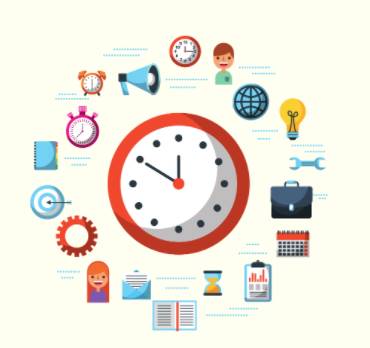
Time to rethink
Our cultures may vary.
Our educational experiences may be different.
We may speak different words, and look different from each other.
But our values are what brings us together and creates a sense of belonging.
These are generosity, freedom, fairness, security, and integrity.
Let us come together and work together and see that neurodiversity is about us all
Professor Amanda Kirby is a ‘half full’ rather than ‘half empty’ sort of person but likes to consider the evidence and not work in professional silos. She is the CEO of Do-IT Solutions, a ‘tech for good’ company. Her opinions are all her own. She has developed Profiling tools to help maximize the neurodiverse talent and used in a wide range of settings.
This week she feels very proud as Do-IT has launched a Neurodiversity Profiler for parents to complete for their children to see their spiky profile with loads of resources to support them to be their best.
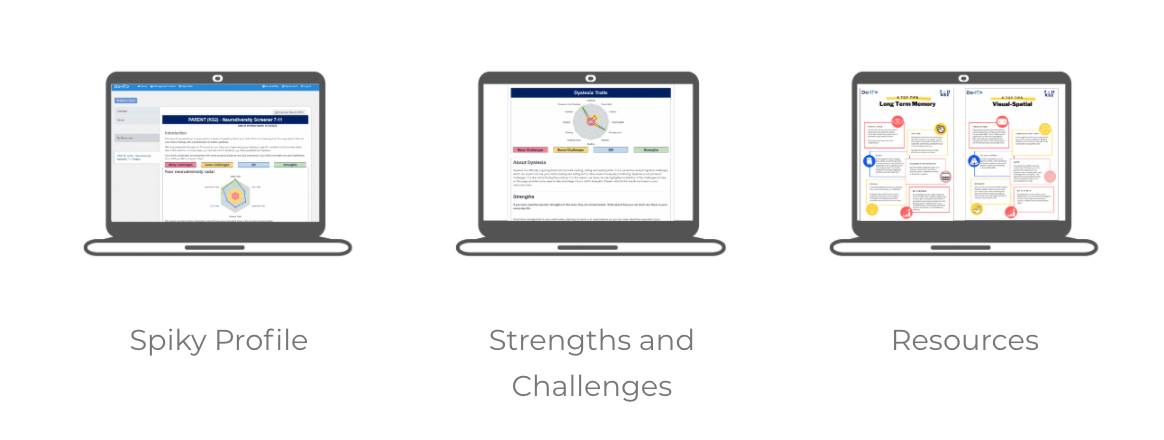
She is bringing out a book in 2021 on Neurodiversity at Work with Theo Smith which she is very excited about! She is one of the 20 UK Voices on LinkedIn in 2020.
Balkantimes.press
Napomena o autorskim pravima: Dozvoljeno preuzimanje sadržaja isključivo uz navođenje linka prema stranici našeg portala sa koje je sadržaj preuzet. Stavovi izraženi u ovom tekstu autorovi su i ne odražavaju nužno uredničku politiku The Balkantimes Press.
Copyright Notice: It is allowed to download the content only by providing a link to the page of our portal from which the content was downloaded. The views expressed in this text are those of the authors and do not necessarily reflect the editorial policies of The Balkantimes Press.
